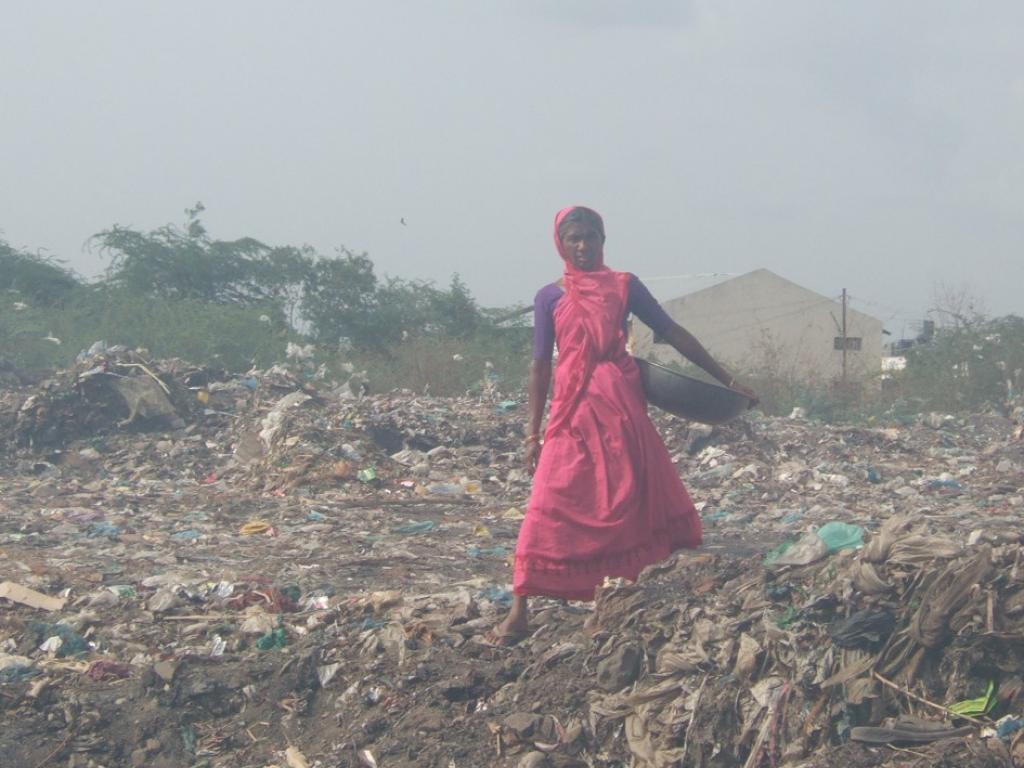A personal reflection on the adaptation – development tension

As someone in the early stages of my career, I have often felt relieved that I find myself working a space that has potential to be rewarding both professionally and personally. Then, a few weeks ago, I found myself in a presentation by researchers from India working on the ACDI ASSAR project, trying to understand climate risk and waste pickers in India. It became clear through the presentation and conversations with the presenters, that the migrant waste pickers are in SUCH a desperate situation, living from hand to mouth in the most atrocious circumstances, that it doesn’t appear that they are at all concerned with what the climate will look like in 20- 30 years. Through work over a few years on governance, disaster management and climate change adaptation I have often found myself asking – what’s all the fuss with adaptation to climate change, if it seems to be the furthest thing from peoples’ minds? As in the case of the waste pickers, what if development needs are so great that there is no current interest or need to engage with longer term climate change thinking? To what extent do we (speaking broadly here for people working in academia) actually grapple with the systemic development issues that will make or break adaptation efforts?
I am often left feeling quite despondent at the massive development deficits in South Africa and many other countries, where there are scores of people who find themselves in extremely vulnerable situations with things only bound to get worse with the impacts of climate change. I think perhaps my despondency as a researcher comes from a perceived disconnect - working within the theoretical space of academia can often leave me feeling quite far removed from the ‘coal face’ and the people on the ground. I have found myself reflecting on how we as researchers can engage with short term adaptation and long term climate change, which results in substantive change in the daily realities of vulnerable South Africans? It’s a big ask….
I realise I am not the first person to ask this type of question, and I am sure that there are many interesting conversations to be had with others in my field (a few of which I have already had when chatting to people about this blog) and many, many papers to be read, which will help me work through this and other related questions. I also suspect I might not ever ‘arrive’ at a final answer as such, but working this tension out for myself will be a process over the span of my career. In the meantime, two things I am personally resolving to do might help:
Keep an ear to the ground – I will engage with, support, and work alongside or with organisations working in sustainable development, whether that be NPOs, government, social business or the private sector. As we see healthier, wealthier, more educated people living in more equal, peaceful, greener cities we will hopefully simultaneously see responsible consumption, cleaner energy sources, and sustainable practical responses to climate change.
Be mindful and thankful – I will choose remain cognisant of my privileged position in society and the benefits it has afforded me. I am very thankful for 12 years at a school with subjects that allowed me entry into a world class university, and entrance into this ‘niche’ field. With my time and resources not preoccupied with basic survival, I am fortune to work in an environment where I can think critically about issues and work with people who also want to find solutions to the challenges we face as a nation, continent and planet.
So in a way reaching the end of a blog post like this is somewhat cathartic – taking some time to reflect I see so much potential for young researchers to engage in research in new and exciting ways which ultimately have impacts in both the adaptation and development fields. I find the challenge of making adaptation relevant an exciting one. My approach is one where I don’t necessarily go in with adaptation-guns blazing, but rather aim to meet people where they are at, considering each unique situation and understanding its nuances. In this way I am able to begin to weave in considerations of climate change and adaptation gently and cleverly so that whoever I am engaging with, be it a municipal manager or a mother in a flood prone community in Cape Town, can come to see and understand its applicability. Through inter and transdisciplinary research projects and programmes I am excited to engage with practitioners, communities, private sector and other academics, especially in the development field, to undertake research that is as pragmatic as it is rigorous.
And who knows, perhaps I may find myself moving away from academia in the future and closer to the ‘coal face’. I think the amazing thing about the pervasive nature of climate change is that where ever you find yourself, professionally or personally, it’s always applicable and there is always some to engage, be it your colleague, client, family or child.
Disclaimer: The views expressed here are solely those of the author in her private capacity
Image credit: Wikkipedia